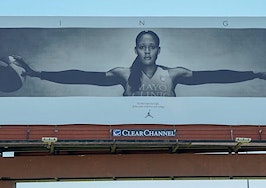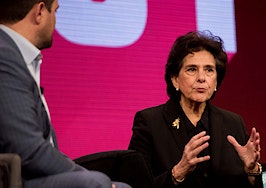Kris Lindahl started his company, Kris Lindahl Real Estate, in 2018 with 30 agents, and now, fewer than two years later, he has grown to more than 100 agents with massive market share in the Minneapolis-St. Paul area.
Here’s a little background:
Lindahl got his start in 2009 doing short sales as an individual agent. During this time, he quickly learned to be budget savvy and maximize his spending because he didn’t have much to begin with.
From the get go, Lindahl knew that he wasn’t going to be the average short-sale agent, listing homes with photos, resting on his laurels. He dove in deep and even wrote a book on short sales, which he used as a marketing tool with potential sellers. By delivering the book to homeowners in default, he quickly dominated the short-sale market.
As short sales were getting more difficult to get approved by the banks in 2013, he leveraged the short-sale listings into other listings and dropped the term “short sale” from his vocabulary.
2014 was his last year as a solo agent. He sold 175 homes with one assistant, and he knew then that he had to build a team. Not knowing much about teams, he turned to his lender partner for a referral.
Fast forward to 2019; his team of about 100 agents closed about 1,500 transactions.
I recently sat down with Lindahl to discuss team growth momentum, vying for the consumer, branding and more. Below is our conversation.
Having recently grown my team to 30 agents, I’m wondering does it get easier?
Lindahl: There’s momentum and then there’s the universe pulling you back. You have different things going on at different times. It doesn’t get easier, it actually gets more difficult. Especially if you’re the market leader because everyone is gunning for you.
There are parts of it that get easier, but when one part gets easier, another part becomes more difficult. The reason we had the growth that they did is that we continued to invest our resources back into the company.
When we work with our clients, we treat the commissions as marketing dollars to get more for sellers’ homes whereas most agents, teams and brokers treat that money as income. And they don’t have the money, mindset and knowledge to know where to put that money back in.
They don’t know where to put it, they don’t have the stomach for it and they don’t want to roll the dice like that. Most people can’t scale companies because they’re not comfortable with the risk.
Previously, you’ve said that the big companies are vying for the consumers’ attention and that smart brokers and agents are going to be investing in making their brand stand out. Can you expand on that?
Lindahl: The thing that I’ve learned is that when you have a brand and you have your 360-degree hat on … I don’t think that the top teams or the brokers that operate like teams that are well-branded are going to get disrupted.
The individual agent or the traditional brokerages that have agents … that either don’t have the appetite to market or don’t have the training or knowledge to do it, I think they’re out.
I also think that our true competition in the real estate industry is the way the consumer is served elsewhere. The way they can rent a car through Turo or book travel through Airbnb. How you can order groceries through Instacart and Amazon Prime and DoorDash, Lyft and Uber and all the other services we see in all these other industries.
I think the mistake we make as leaders is that we think that our industry is exempt from this because it’s more complex or they need more information.
We still, as human beings, are being trained for that instant gratification. That super convenience for everything we do. We don’t want anything that’s complex. We want simplicity for everything we do, and we want it quick.
It sounds like you’re saying that people prefer convenience over service, which means that only those agents investing in their brand will be left standing. For me, that’s going all-in on content. I’m teaching my agents to put out knowledge-based information that will make them more memorable. When you’re talking about promoting the brand, you’re also talking about putting something behind the brand, right?
Lindahl: I believe that convenience has superseding loyalty, and for the first time in our industry, it’s no longer the “friends and family” plan. The homeowner that’s looking to sell one home and purchase another, when they’re looking for someone to sell their home, they’re looking for someone that has the best strategy, least amount of time on the market, top-dollar tech, proven results.
[Consumers] have the ability to look online and figure out how much their home is worth, they can look up how much each agent [has] sold. And now when they interview each agent, they already have the information which wasn’t already available five to 10 years ago, so they end up in a situation where they don’t feel obligated to hire that Realtor.
Today, they’ve already done that research, and they realize that “this is not the best thing.” And when they’re looking to buy, it’s super quick — who can get me in first?
As a real estate company, you have a strategy for inside sales agents to answer the phones, answer the signs, answer the registrations, app inquiries, answer questions on social media. Whatever comes at you from a consumer standpoint, you have to have a strategy to respond within minutes.
And when you look at that traditional agent, which has traditionally been one person, you can’t provide that level of service. So when you look at what’s happening everywhere around the country, people are opting for that level of service over the relationship they had.
In some cases, [Realtors who have] sold three generations of families their houses, and now all of a sudden, that’s completely flipped into who has the best products, strategies, tech and who is going to make it super easy, they don’t want to deal with any brain damage.
We’re seeing this all the time. Consumers are opting for the quick and easy tech company option on the sell-side and then turning to us for the buy-side. I don’t think this would happen if we were being loud enough on what we do, and by loud, I mean being strategic and intelligently demonstrating value.
Lindahl: Totally, and when you mention the word “loud,” that’s a good word, but you also have to be careful. Loud and annoying, where people don’t really treat you as a credible source, where people don’t treat you as an authority in the real estate market in your area is risky. But being loud and giving lots of value is super attractive.
If you’re educating the consumer and giving them lots of information, you’re going to attract more people. They are going to be like “this person knows way more than anyone else I’ve seen online, on social and I’m going to use them because of their market knowledge.” And people want to use an agent that has the authority to know what’s actually happening.
What’s your piece of advice for helping agents create their brand and future-proof their business?
Lindahl: It depends on the model that they’re underneath … I would challenge agents to look around [at what] your broker or team leader [is] actually doing to build a brand and generate business for you because if they’re not doing anything … they actually aren’t doing branding for you, you’re doing it for them.
If I were an agent within a team or within a company, I would only go to one that’s marketing heavily and well-branded and doing all kinds of amazing stuff for the community.
As an agent in an organization like that, I would leverage the name that every consumer already knows rather than try to create a name for myself that no-one knows.
There’s a way to leverage all the brand equity with the team or the brokerage you’re at so that you both can benefit from it, and you’re actually rising up together.
Ryan Rodenbeck is the broker-owner of Spyglass Realty and Investments in Austin. Connect with him on Instagram.













